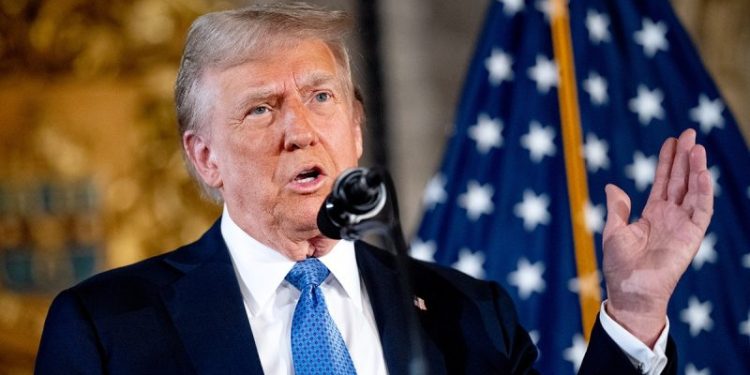The global race to harness the power of artificial intelligence (AI) has begun. President Donald Trump got it right from the start when he issued an executive order in January to strengthen America’s AI – the next great technological forefront.
From Day One as Environmental Protection Agency (EPA) administrator, it was clear that EPA would have a major hand in permitting reform to cut down barriers that have acted as a roadblock so we can bolster the growth of AI and make America the AI capital of the world.
In fact, it’s an endeavor so important, it is a core pillar of my Powering the Great American Comeback initiative.
Those looking to invest in and develop AI should be able to do so in the U.S., while we work to ensure data centers and related facilities can be powered and operated in a clean manner with American-made energy.
Let’s put this into perspective. The global AI manufacturing market is valued at about $7 billion, but it’s expected to explode to $48 billion by 2030. Already industries across every sector are integrating AI into their operations, and in order for this growth to continue, AI needs massive data centers, and data centers need electricity that is always on. Lots of it.
Power demand for data centers that support AI, which only use 3% to 4% of U.S. electricity, will eat up nearly 10% of U.S. electricity supply in 10 years according to the Energy Information Administration. To support this rapid growth, states need to be able to build more baseload power generation, and that’s where EPA comes in.
EPA wants to increase certainty for owner-operators in the permitting process, making it clear what kind of permits are needed for new and modified projects.
Policies inherited from the Biden administration have been criticized by many as making EPA a brick wall that impedes the growth of the AI industry.
In addition, much of current Clean Air Act (CAA) requirements for building data centers dates back to the 1990s, when technology was practically prehistoric compared to modern advancements. These rules require companies to install pollution control equipment when they build new facilities or make a change that increases emissions significantly.
The digital revolution has ushered in new needs and new industries which demand new permitting rules that help, not hamper development.
Under President Trump’s leadership, the permitting reform we are looking to undertake, if finalized, will help clear the way for data center and AI development across the U.S., while ensuring that human health and the environment are protected.
If a power company wanted to restart a plant that had been out of service to meet increased grid demand, under the Biden EPA they had to go through the entire permitting process all over again.
Under our upcoming proposed rules, if finalized, utilities would be allowed to restart plants much faster, especially in times of emergencies like storm recovery. Anyone who has lost power during or after a weather event knows how critical it is to get back on the grid.
Through the CAA permitting process, EPA will seek to address the minimum requirements for public participation when it comes to minor emitters so the protest of a few does not unnecessarily thwart progress for all Americans.
Our permitting reforms will also help expedite construction of essential power generation and industrial facilities. EPA will be a partner to state, local and Tribal air agencies instead of a hindrance.
At EPA, we are also working on redefining preconstruction, which would, if finalized, only require a company to obtain an air permit when the company actually breaks ground.
A company looking to build an industrial facility or a power plant, should be able to build what it can before obtaining an emissions permit. For example, companies could install cement pads or conduct other construction activities that aren’t related to regulated air emissions.
Other countries are racing to be number one. America’s AI leadership depends on our ability to build the infrastructure that powers innovation.

















